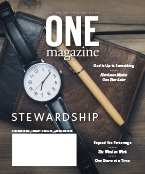
February-
March 2019
Stewardship
------------------
|





Beyond the Parsonage
By Chris Compton
Does your church provide a parsonage for your pastor and his family? A church-owned parsonage offers many advantages for both church and pastor. A church-owned parsonage can help a church attract the pastoral candidate of its choice, assist him with a better compensation package, and create a smoother transition. As for the pastor, a parsonage can be a great benefit. It also can free the pastor from time-consuming worries and expenses related to repairs and maintenance. I applaud churches that take care of the pastor!
Churches may not be aware of one disadvantage to parsonage life, however. The pastor does not have an opportunity to build equity in a home over the course of many years. This can be a problem for the minister but could be one for the church as well. A pastor with no housing prospects after retirement might stay longer at a church than he wants or should, which may not be good for him or for the church.
Churches that provide a parsonage can avoid this potential hardship by establishing a Minister’s Equity Fund. This fund provides the equivalent of equity in a home in addition to the minister’s regular compensation. The church sets aside money in a tax-advantaged account for the benefit of the minister. The fund accumulates according to the specific agreement during the pastor’s ministry. When the pastor retires or resigns, the balance of the fund is paid to the pastor. Since this is a deferred compensation payment, it is not subject to federal income taxes until withdrawn.
A church should consider two alternatives when establishing a Minister’s Equity Fund. The first is to open an Institutional Investing Account in the church’s name but for the benefit of the pastor. Since the investment account is in the church’s name, contributions to the account and its earnings are not taxable to the minister until they are withdrawn and paid to him. This allows the church to maintain control of the account for its intended purpose.
A second alternative is to make contributions to the minister’s 403(b)(9) retirement account. These contributions remain and grow in the tax-deferred account until withdrawn by the minister. In this scenario, the minister is the owner of the account and has control over how the money is used. These additional contributions also may limit the amount of retirement contributions a minister can make.
For churches whose pastor lives in the parsonage, a Minister’s Equity Fund is an excellent way to provide security for their pastor. The provision of a parsonage, when combined with an equity fund, can meet the pastor’s housing needs both now and in the future. The Free Will Baptist Board of Retirement is here to help churches go beyond the parsonage and establish a
Minister’s Equity Fund.
If you have questions or want more information about setting up institutional investing or making contributions to the pastor’s retirement account, call 877-767-7738 or send an email to
boardofretirement@nafwb.org.
About the Writer: Chris Compton is communications officer for the Free Will Baptist Board of Retirement. He graduated in 2007 with an M.A. in Bible exposition from Columbia International University. A 1998 graduate of East Tennessee State University, he has over 13 years of administrative/financial experience in varied fields as well as seven years of pastoral ministry experience.
|
|

